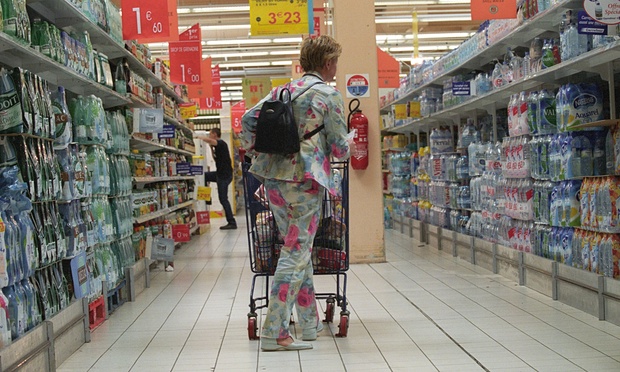05-02-2016 | France has turned into the first nation on the world to restrict grocery stores from waste unsold food, compelling them rather to give it to charities and food banks. Under a law passed unanimously by the French senate, as of Wednesday big shops will no longer waste good quality food approaching its best-before date. Foundations will have the capacity to give out millions all the more free meals every year to individuals attempting to bear to eat.
The law takes after a grass roots campaign in France by customers, anti –poverty campaigners and those opposed to food waste. The movement, led to petition, which was begun by the councillor Arash Derambarsh. In December a bill on the issue passed through the national assembly, having been presented by the previous food industry minister Guillaume Garot.
Campaigners now want to influence the EU to embrace similar law across member states The law has been welcomed by food banks, which will now start the assignment of finding the additional volunteers, Lorries, stockroom and refrigerator space to deal with the increase in food donations from supermarket.
Grocery stores will also be banned from purposely ruining food in order to collect it directly from bins. A few grocery stores soaked binned food in bleach, allegedly to prevent food poisoning from items taken from bins. Other stores purposely binned food in locked warehouses for collection by trucks.
Managers of supermarkets with an area of 400 sq meters (4,305 sq ft) or more will need to sign donation contracts with charities or face punishments, including fines of up to €75,000 (£53,000) or two years’ jail.
Jacques Bailet, head of Banques Alimentaires, an association of French food banks, depicted the law as “positive and critical typically”. He said it would extraordinarily expand an effectively developing pattern for stores to give to nourishment banks.
“Above all, since grocery stores will be obliged to sign a gift manage philanthropies, we’ll have the capacity to build the quality and differing qualities of nourishment we get and appropriate,” he said. “Regarding nourishing equalization, we at present have a shortfall of meat and an absence of products of the soil. This will ideally permit us to push for those items.”
As of recently French sustenance banks got 100,000 tons of gave merchandise, 35,000 tons of which originated from general stores. Indeed, even a 15% expansion in sustenance originating from stores would mean 10m more dinners being distributed every year, Bailet said.
France, as such, goes more than the UK, where the legislature has a deliberate agreement with the grocery and retail section to cut food and packaging waste in the store network and does not have obligatory targets. But, a UK food waste bill, with comparative procurements, was acquainted with the Commons last September by the Labor MP Kerry McCarthy.
Of the 7.1m tons of foods wasted in France yearly, 67% is binned by customers, 15% by restaurants and 11% by shops. Each year1.3bn tons of food are wasted worldwide.
A report released in 2015 demonstrated that UK families wasted 7m tons of food in 2012, sufficiently to fill London’s Wembley stadium nine times over. Avoidable family food waste in the UK is connected with 17m tons of CO2 discharges every year.
Source: internationalsupermarketnews.com

